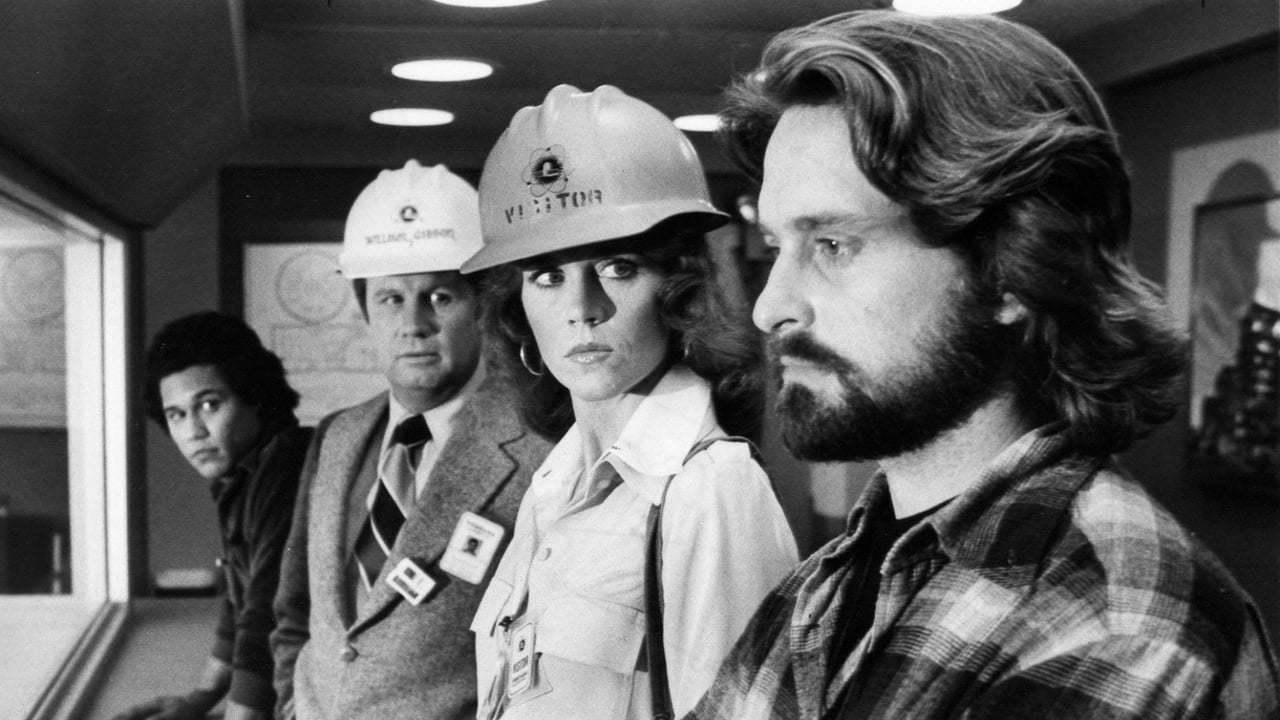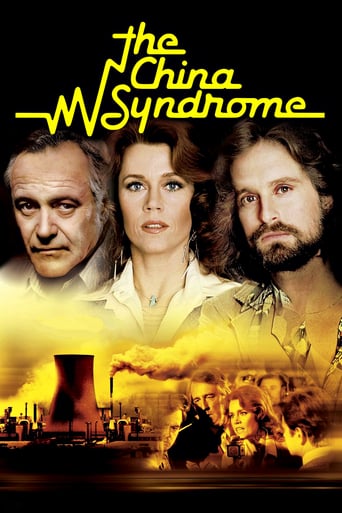James Hitchcock
Despite the rather silly title, "The China Syndrome" has nothing to do with China. Nor, for that matter, has it anything to do with a "syndrome" in the medical sense. The title refers to the fanciful idea that a nuclear meltdown might result in the reactor melting its way through the Earth and emerging in China. The story concerns a "near-miss" accident at a nuclear power plant which nearly results in such a meltdown, although the staff narrowly manage to bring the situation under control. The incident, however, has been witnessed by Kimberly Wells, a television news reporter visiting the plant on a routine assignment, and by her cameraman and soundman. Moreover the cameraman, Richard Adams, has surreptitiously captured the whole incident on film.The three main characters in the film are Kimberley, Adams and Jack Godell, a senior manager at the plant. Kimberley is a young and inexperienced reporter, chiefly employed by the station to report on bland, uncontroversial "human interest" stories, and with no background in investigative journalism. Jane Fonda, the actress who plays her, would have been 42 in 1979 but looked at least a decade younger. The Christian name "Kimberley", unusual for an American woman of Fonda's generation, may have been deliberately chosen to suggest a younger person. At first she is happy to go along with her station bosses who want to cover up the incriminating footage because Adams was acting illegally by filming inside the plant. Later, however, she changes her stance when she realises the massive implications of what she has witnessed.Adams's radical politics and counter-culture credentials are emphasised by his then-fashionable long hair and beard. (He is played by the normally clean-cut, clean-shaven Michael Douglas). He wants to go public with the incriminating evidence from the start and has little sympathy with what he sees as Kimberley's temporising, possibly because he is a freelance rather than an employee of the station and therefore has less to lose than her.Godell is perhaps the most interesting of the three. He is in late middle age and has always been a loyal employee of the company. He has an expert knowledge of the nuclear industry, and is the man chiefly responsible for averting the threatened crisis. When he realises, however, that the employers to whom he has dedicated his life are taking serious risks with public safety, he determines to expose them, even though he knows he will be putting himself in danger by doing so. The company, like the bad guys in all thrillers of this sort, will do anything, up to and including murder, to silence their critics. (Hector, Kimberley's soundman, is seriously injured when his car is forced off the road in an attempt to kill him). Desperate to ensure that the truth is known, Godell is forced to take the drastic step which forms the central incident of the film.Fonda was a favourite daughter of the Academy in the late seventies. She won the "Best Actress" Oscar for "Coming Home" in 1978 and was nominated for "Julia" in 1977 and for this film in 1979. Interestingly, all three roles reflect her own left-wing political beliefs; she was not nominated for any films from this period (such as "California Suite") which lack an obvious political sub-text. The Academy obviously had no hard feelings about her controversial visit to Hanoi earlier in the decade, although some sections of American public opinion were to be less forgiving.Whatever one may think of her politics, however, Fonda is certainly good here- better, in my opinion, than she had been in the dull and overrated "Coming Home" or the intellectually dishonest "Julia". She is able to bring out the way in which her character develops emotionally and spiritually. Kimberley is initially a rather naive young woman, happy to go along with her bosses rather patronising view of her as the pretty public face of broadcast news. With a public role, however, come public responsibilities, and Kimberley gradually realises that she has a duty to tell the truth, even if (or especially if) someone else would prefer that truth to remain untold. The other excellent performance comes from Jack Lemmon (also Oscar-nominated) as the desperate Godell.The film reflects the post-Watergate mood in America that those in authority were not to be trusted. It gave rise to a number of similar thrillers, such as "Silkwood" (based on a true story), "The Pelican Brief" and "Chain Reaction", in which intrepid investigators tangle with a gang of corporate villains who are trying to cover up the fact that they have been playing fast-and-loose with public safety or otherwise acting in a manner detrimental to the public interest. It also marks a shift in the way nuclear power was perceived during the seventies. During the fifties and sixties it was regularly cited as the prime example of how science could be used for either good or evil; ban-the-bomb campaigners were careful to stress that they opposed the military, but not the peaceful, applications of atomic power. The seventies, however, saw the growth of an overarching anti-nuclear movement which campaigned not only against nuclear weapons but also against civilian nuclear power.Upon its first release on 16th March 1979, "The China Syndrome" was, predictably, rubbished by the nuclear industry, which claimed that the events portrayed were pure fantasy. And then, on 28th March, came the nuclear accident at Three Mile Island. The film suddenly started to look prescient rather than fantastic; its box-office success was assured. It began to look more prescient still when the much more serious Chernobyl accident occurred a few years later. And, in the light of the Fukushima disaster of 2011, public concerns about nuclear power still have not gone away, nearly forty years after the film was made. 7/10
Hitchcoc
Because of this film, the crisis in Pennsylvania really came home. We have now had major incidents in Chernobyl and in Japan. Now we have a President elect that is about to play around with nuclear weapons and is in bed with the Russians. I know that is really political, but we have had elements of restraint and caution and have managed to survive for decades. I know nuclear weapons aren't power plants, but the result of mishandling either would silently kill tens of thousands of people. In this film we are presented with a very possible scenario. Because of negligence or general lack of concern, a potential meltdown is a possibility. This is about human error and we have no shortage of humans who are perfectly happy to allow others to face the consequences of their actions, especially when money is involved. Jack Lemmon is excellent. There is amazing tension all the way through. God help us if such a scenario ever plays out.

